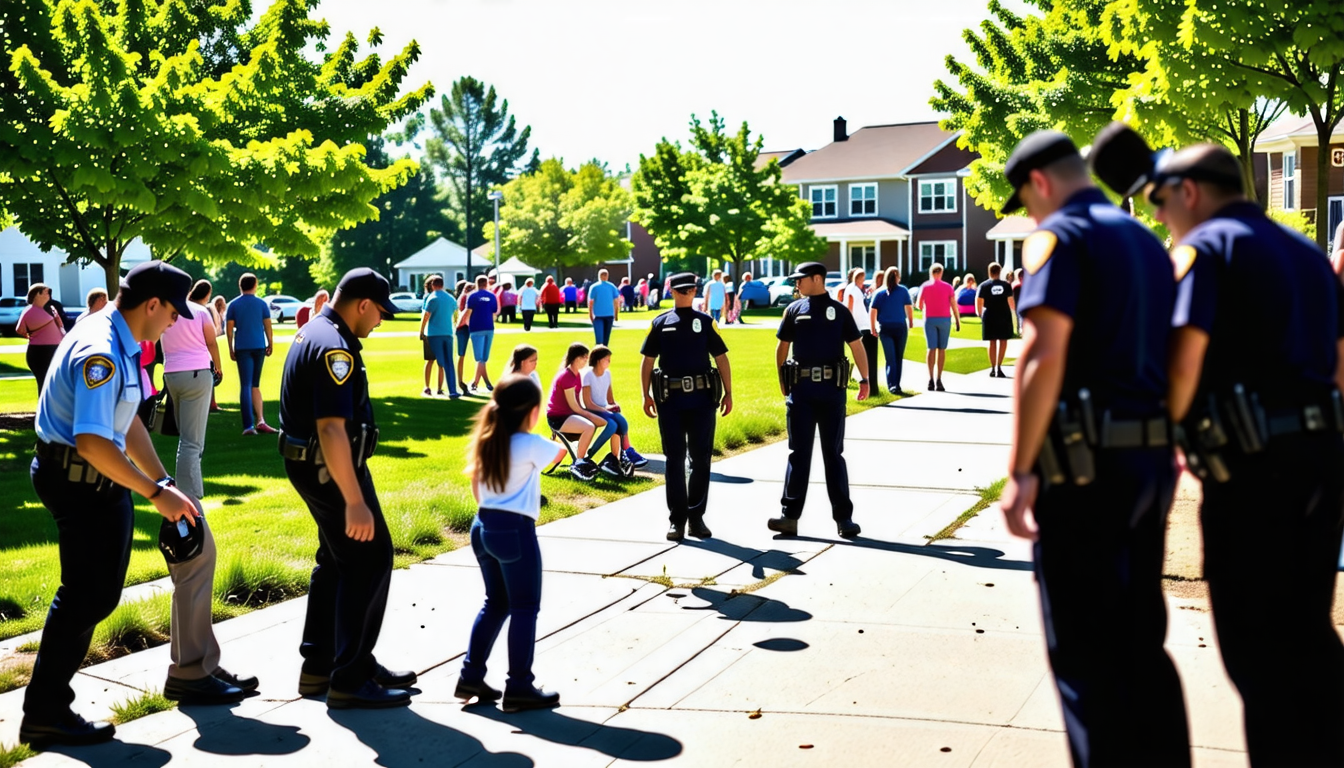|
IN BRIEF
|
The issue of missing persons represents a critical challenge for law enforcement agencies across the globe. Understanding police protocols for handling these sensitive cases is paramount for ensuring effective investigations and timely resolutions. In many jurisdictions, there is no obligatory waiting period to report someone missing; immediate action can save lives. Guidelines established by law enforcement agencies delineate a structured approach, allowing officers to efficiently process reports and gather critical information from families and witnesses. Central to these protocols is a careful assessment of risk factors, which informs the urgency and depth of the investigation. As officers delve into each case, the application of standardized practices ensures that no detail is overlooked, ultimately aiding in the search for individuals who may be vulnerable or in perilous situations.
Missing persons cases present unique challenges for law enforcement agencies. Whether it involves a child, an adult, or a vulnerable individual, the approach taken can determine the outcome significantly. Each police department has formulated protocols aiming to efficiently handle these sensitive situations, ensuring that all reports are meticulously processed and investigated.
Conclusion of Protocol Adherence
Ultimately, the success of missing persons investigations hinges on strict adherence to established protocols. Law enforcement agencies across the country continue to evolve their methods, ensuring they can respond to cases intuitively and effectively. To explore more about the guidelines and curriculum for handling missing persons investigations, further information can be accessed via resources offered by credible sites like the California POST:
Moreover, police departments can benefit from additional resources such as:
By combining community engagement, effective communication, and technological advancements, law enforcement can enhance their protocols, paving the way for better outcomes in missing persons cases.
Investigation Procedures
Following the initial report, detectives will conduct a comprehensive investigation. Police protocols require them to take several steps, including interviewing friends, family, and acquaintances of the missing person. These conversations aim to establish a timeline of events, helping to identify any potential leads. Each interaction is documented thoroughly to maintain accuracy and facilitate future inquiries.
Community Involvement
In many cases, the involvement of the community can significantly aid in the investigation. Agencies often employ public outreach methods to disseminate information, which may include social media posts, bulletin boards, or press releases. The goal is to reach a broad audience to generate tips and information that may lead to the missing person’s recovery.
Understanding police protocols for missing persons cases is crucial for effective investigation and community safety. When someone goes missing, the immediate response of law enforcement can play a significant role in the outcome. As per the guidelines established by the Commission on Peace Officer Standards and Training, officers are advised to prioritize such reports and take action without delay. Contrary to popular belief, there is no requirement to wait 24 hours to file a missing persons report; it is critical to act swiftly, as each hour can significantly impact the investigation.
Furthermore, police departments often implement standardized protocols. For instance, officers should follow a checklist that includes gathering details about the individual’s last known whereabouts, personal habits, and potential risks involved. The initial stages of the investigation are crucial, and agencies must conduct full assessments of each case while considering the mental and emotional states of the families involved.
Moreover, the emphasis on public outreach can establish a mutual understanding regarding agency procedures and policies related to missing persons. Engaging communities in awareness campaigns may also heighten vigilance and support in uncovering missing individuals, ultimately enhancing the overall effectiveness of the investigation process.
Understanding police protocols for missing persons cases is crucial for effective law enforcement response and community safety. The processes involved in these investigations are guided by established guidelines and training mandated by the Penal Code, ensuring that each case is treated with the utmost seriousness. Prompt reporting is essential; individuals should not hesitate to alert authorities as soon as they suspect a loved one is missing. Police departments adhere to specific procedures during the initial response and follow-up investigations, which are designed to maximize the chances of locating the missing person safely. Additionally, fostering communication between law enforcement and the public can enhance understanding of these protocols, helping to create a supportive environment during distressing times.
FAQ
What should I do if someone goes missing?
R: If someone you know goes missing, report it to the police immediately by calling 911. There is no need to wait 24 hours before making a report.
How do police handle missing persons investigations?
R: The police initiate an investigation by entering the missing person’s information into their systems, assigning detectives to the case, and following specific protocols to gather information.
What are the key elements of a missing persons policy?
R: A comprehensive missing persons policy includes clear guidelines for initial response, risk assessment, and follow-up procedures. It ensures that all reports are given full consideration.
Is there any specific training for officers dealing with missing persons cases?
R: Yes, law enforcement agencies are required to provide training based on guidelines established by the Commission on Peace Officer Standards and Training. This helps officers effectively handle such investigations.
Can I file a missing person report for someone over 18?
R: Yes, you can file a missing person report for individuals over 18. The police will treat the case seriously, regardless of the missing person’s age.
